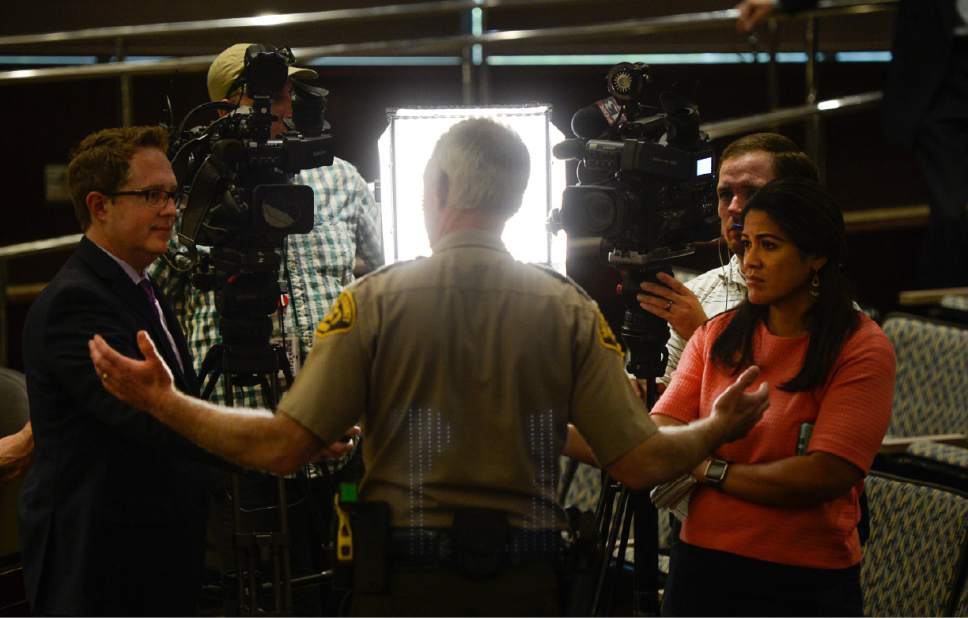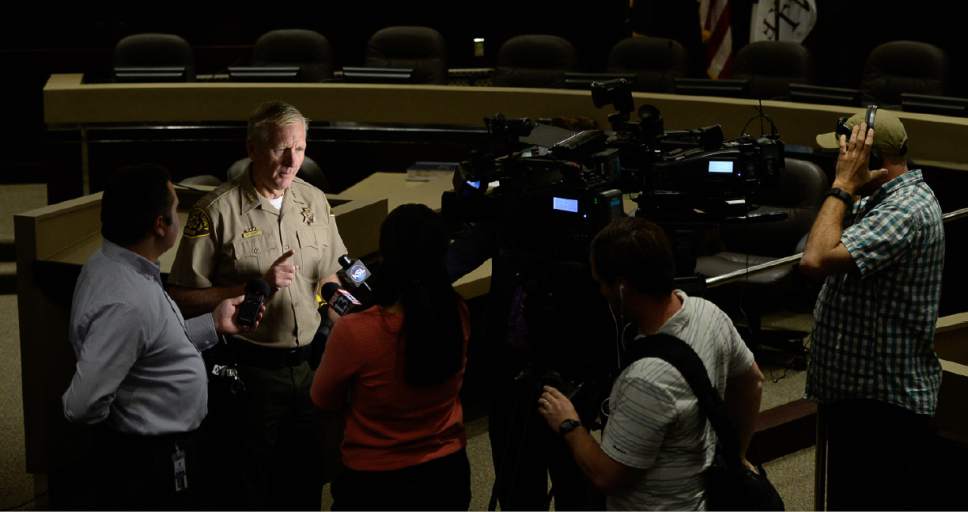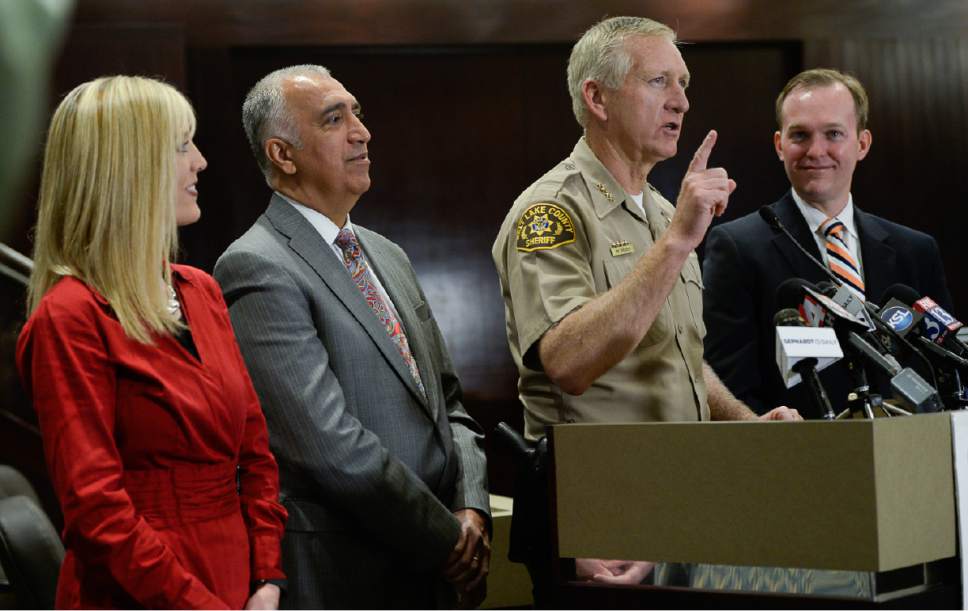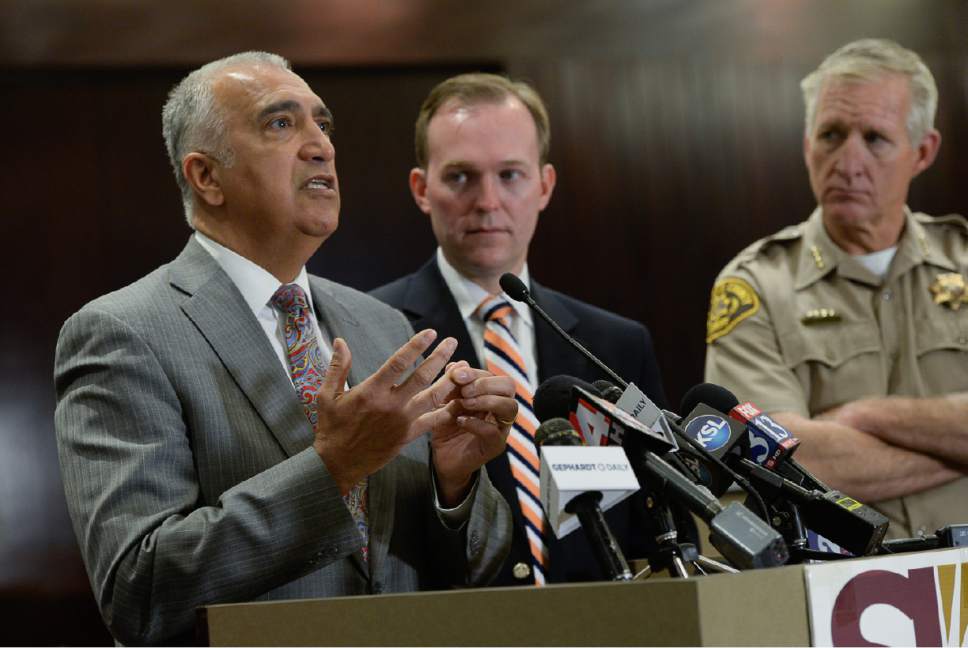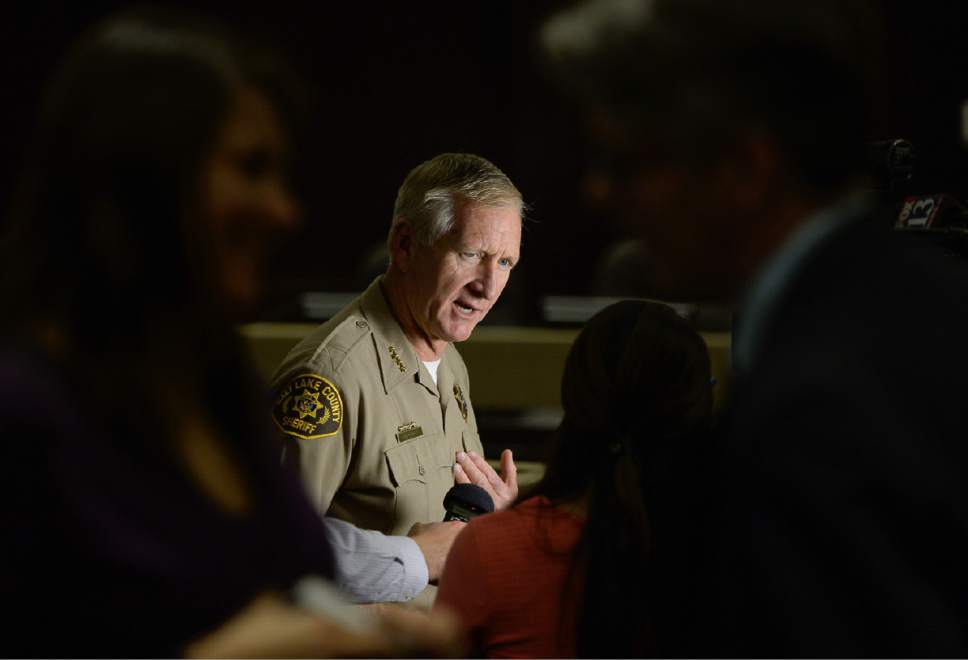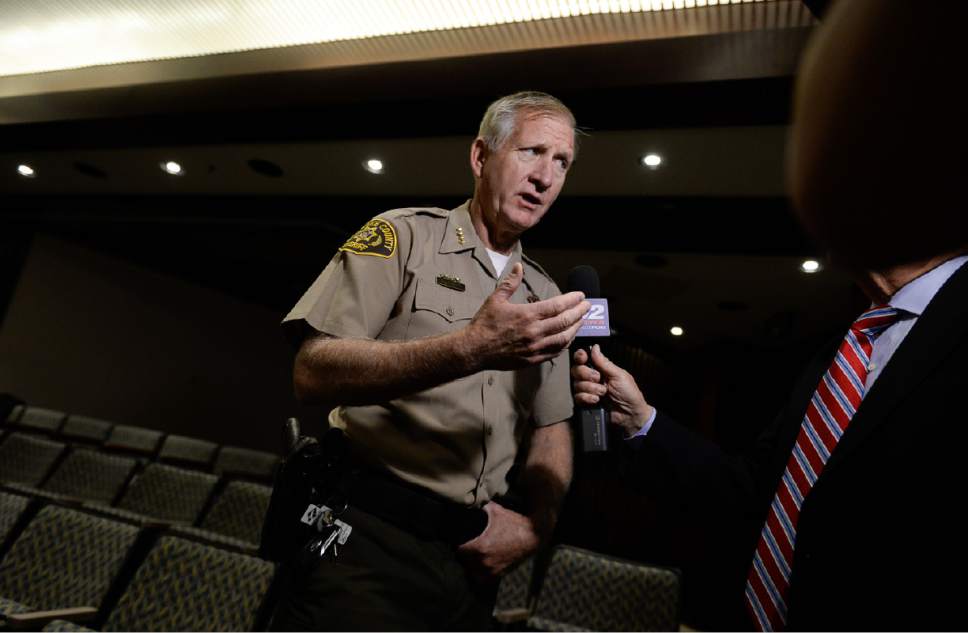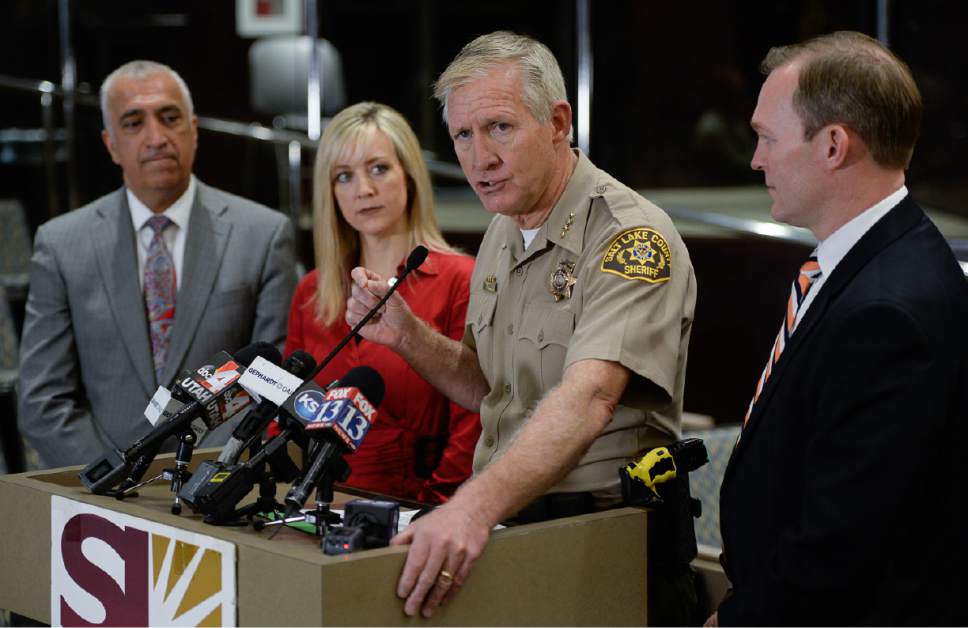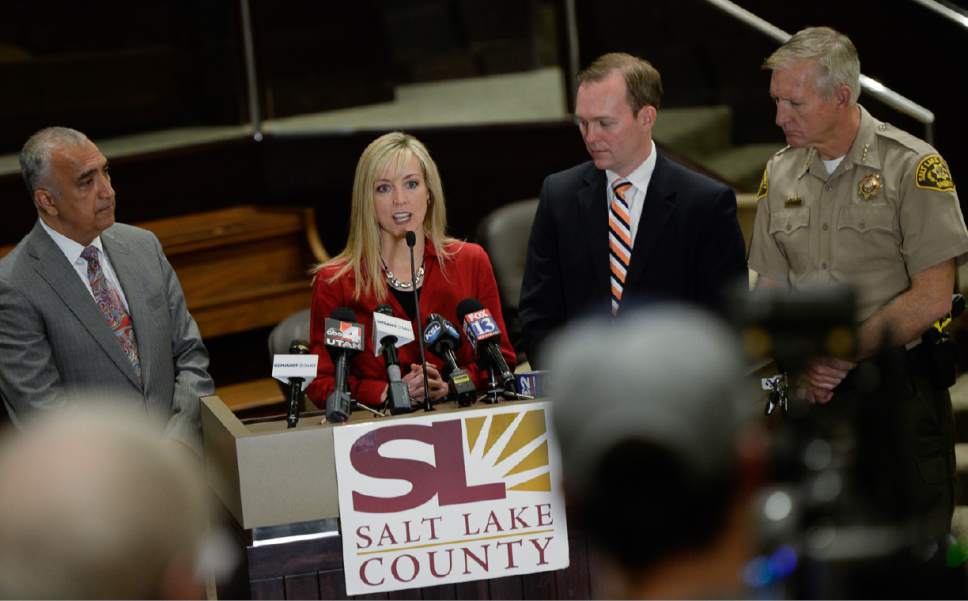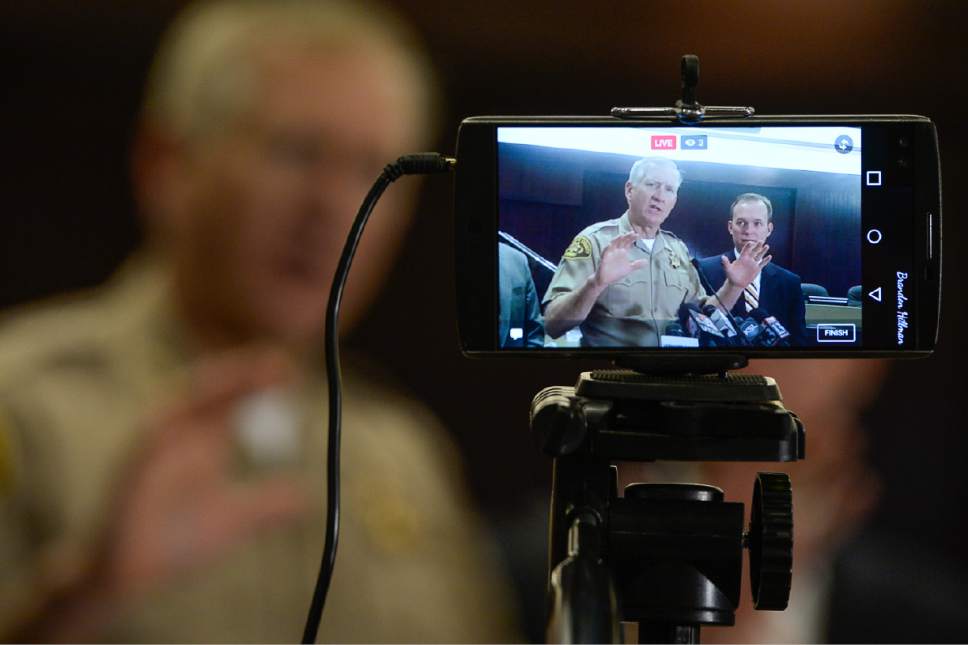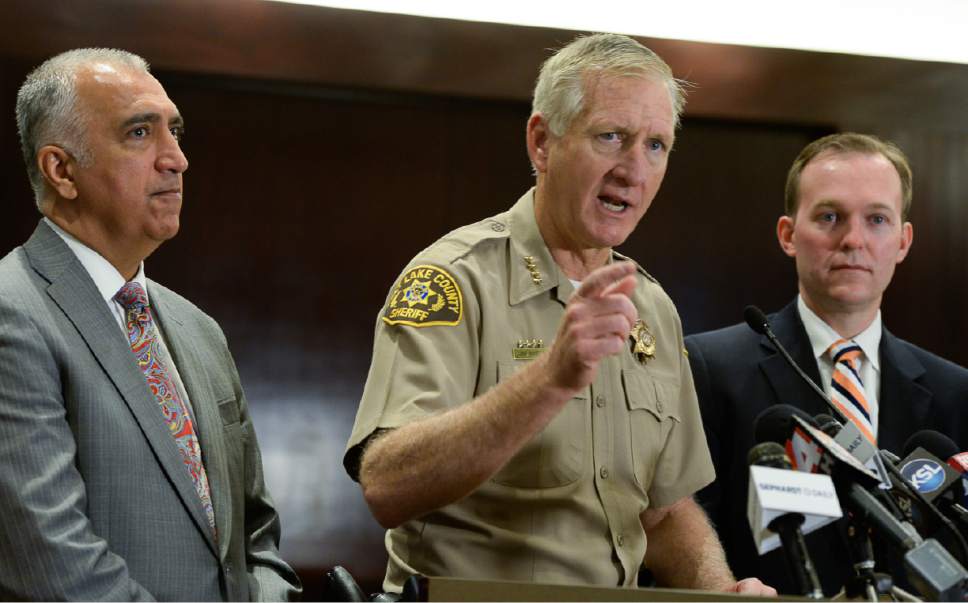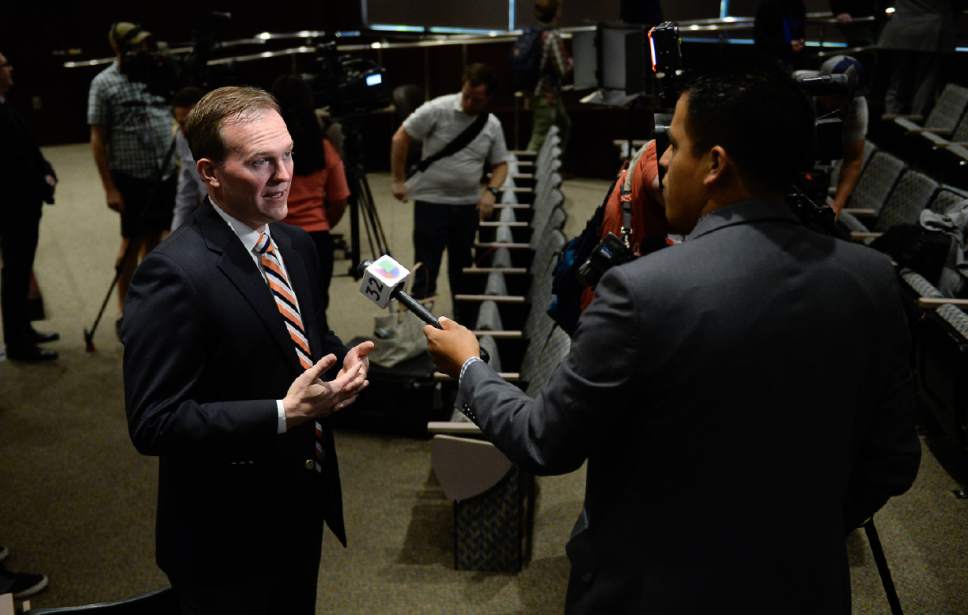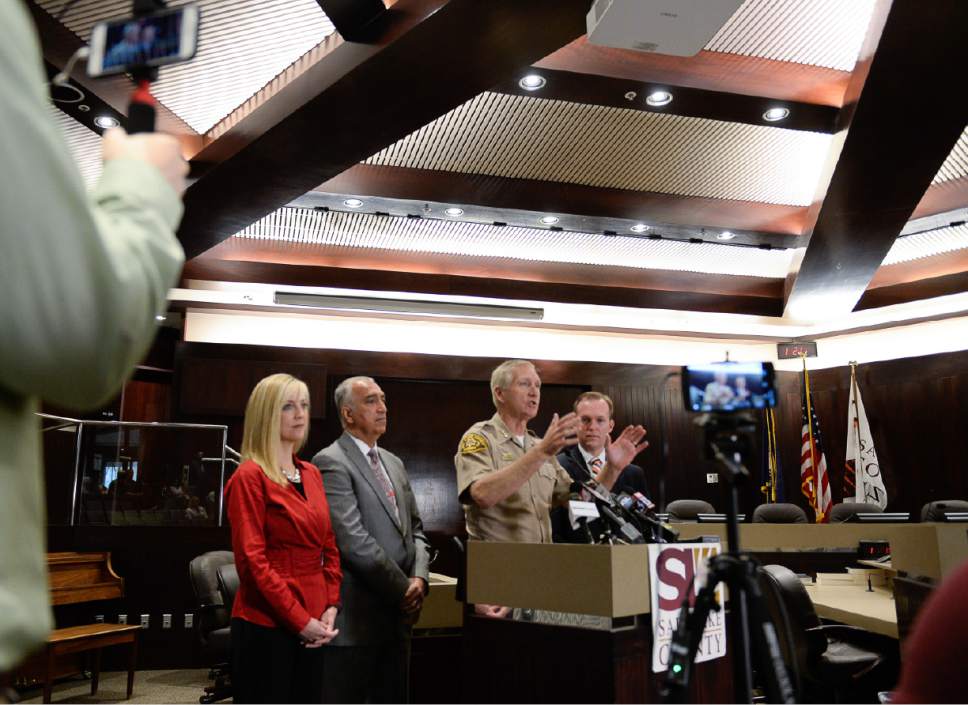This is an archived article that was published on sltrib.com in 2017, and information in the article may be outdated. It is provided only for personal research purposes and may not be reprinted.
By sending county inmates to other parts of the state, Salt Lake County Sheriff Jim Winder hopes to end much criticized restrictions that other law enforcement officials say have allowed criminals who should be locked up to remain free.
Winder and other county leaders held a news conference Monday to announce that the County Council supports a plan to pay $700,000 to begin sending inmates to other county jails within weeks.
The state is expected to provide $2.8 million in matching funds in July. The combined money would allow Salt Lake County to house another 300 inmates a year, which Winder and Salt Lake County District Attorney Sim Gill said equates to about 10,000 jail-bed days.
County leaders said the funding would ease the pressure created as a result of the Justice Reinvestment Initiative, a reform effort to keep people with drug and mental health issues out of prison. County Mayor Ben McAdams said the initiative has shifted 7,000 inmates from state prisons to the county jail because of reduced criminal penalties.
If the plan works as intended, Winder said he'd be able to gradually get rid of the restrictions on which inmates can be booked into jail. A booking policy Winder created that prioritizes violent offenders over crimes involving drugs and other activity has created tension with Salt Lake City Police Chief Mike Brown, who pointed out that chronic drug offenders remain on city streets under the policy.
Winder said if he can get the number of inmates in the Salt Lake County jail to decline, he'll remove the restrictions. "Trust me, nobody wants them off more than me," he said.
Salt Lake City leaders, who weren't invited to the county news conference, released their own statement and later held their own news conference, where they thanked county officials for "fulfilling their responsibility to provide adequate jail space to law enforcement in Salt Lake City and around the valley."
Brown said the plan would give his officers the ability to "interrupt" certain criminal behavior.
"If you're out here using heroin, you're an addict," Brown said. "But we've got to stop that and put you in jail. The jail can be a front door into some sort of program or help."
Salt Lake City Mayor Jackie Biskupski said she intends to ask for $2.5 million in her budget this year to maintain and expand programs to help with homelessness throughout the city, though she declined to elaborate Monday.
The newly unveiled plan comes amid a long-term effort by state, county and city leaders to address visible issues of homelessness and criminal activity in the Rio Grande neighborhood downtown.
Utah House Speaker Greg Hughes, R-Draper, said the plan will help protect homeless residents.
"Homelessness is a statewide issue and every community has a role to play," Hughes said in a written statement. "We must protect the most vulnerable amongst us by arresting the wolves who prey upon them."
The plan isn't without its skeptics.
Brittney Nystrom, executive director of the American Civil Liberties Union of Utah, said it was "unbelievable that amidst the rash of reports of people dying in Utah's county jails that we are contemplating pushing Salt Lake County inmates out into those same facilities."
She said the state should instead focus on funding more treatment options to help people avoid jail.
"This conversation," she said, "should be about human beings who deserve more attention and consideration from us than the little it takes to figure out how to get them out of public view."
McAdams described it as a short-term solution while the state and county work to build three new homeless resource centers and close the 1,100-bed shelter at The Road Home downtown.
Along with the new, smaller shelters, McAdams said the state must focus on funding treatment programs to help people with mental health and drug addiction.
He said Medicaid expansion would help but noted that funding stream is unlikely for now as it would require approval from the Trump administration. The Legislature recently allocated $6 million for treatment programs statewide that will be provided through grants, McAdams said.
Twitter: @TaylorWAnderson


